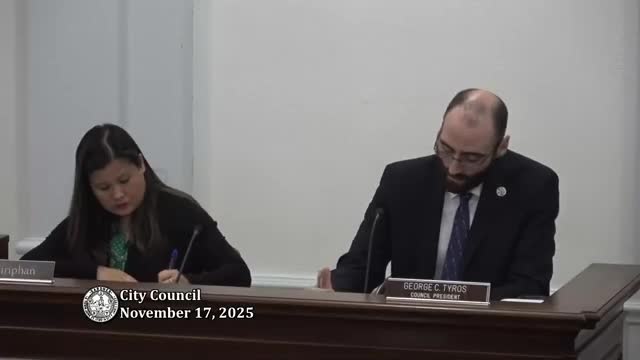Gardner council advances nonunion salary ordinance after amendments on lifeguards, credit caps and assistant pay
Get AI-powered insights, summaries, and transcripts
Subscribe
Summary
The Gardner City Council voted to send a revised nonunion salary ordinance to first printing after amendments including a technical correction for assistant positions, higher lifeguard starting rates and a clarified 10-year cap on credited prior service.
The Gardner City Council on Nov. 17 voted to send a revised nonunion salary ordinance to first printing after weeks of work by an ad hoc committee and the mayor's office.
Mayor Nicholson presented the ordinance as a stepped pay system intended to modernize and standardize nonunion compensation, saying the package "puts our best step forward in getting us into something that we can be with our employees." The proposal would create uniform step scales, allow up to 75% credit for prior city service in some cases, and cap credited prior service at 10 years as clarified in a later amendment.
Councilors debated several changes. Councilor Haglund successfully moved a technical amendment to Exhibit F to restore the intended starting salaries for assistant positions after a spreadsheet error was found. Councilor Mack proposed and, after revision, secured higher rates for lifeguard lines: the council replaced the lifeguard and head-lifeguard entries for "less than 1 year" with higher starting rates (the motion as modified was approved). Councilor General Alex moved to consolidate two subsections so the 10-year maximum credited time applies overall rather than twice; that amendment passed.
Opposition centered on procedural fairness and clarity. Councilor Brooks objected to language that would make some step increases contingent on mayoral reappointment and council confirmation for retroactive increases, calling that requirement "very unfair to the employees." The mayor responded that no position would receive a pay reduction under the proposal and that the administration had met one-on-one with affected employees to explain their placement on the new scale.
After additional technical changes and roll-call and voice votes on amendments, the council approved sending the ordinance to first printing as amended. Multiple councilors said the ordinance marks a long-awaited modernization after about 20 years without a formal step system; they also acknowledged the package does not include performance-review ties or certain department heads while labor law concerns are being resolved.
The ordinance will return for second printing and a subsequent vote; the mayor indicated that, when it reaches that stage, the administration will also submit a detailed list showing where individual employees fall on the step grid for council ratification.
